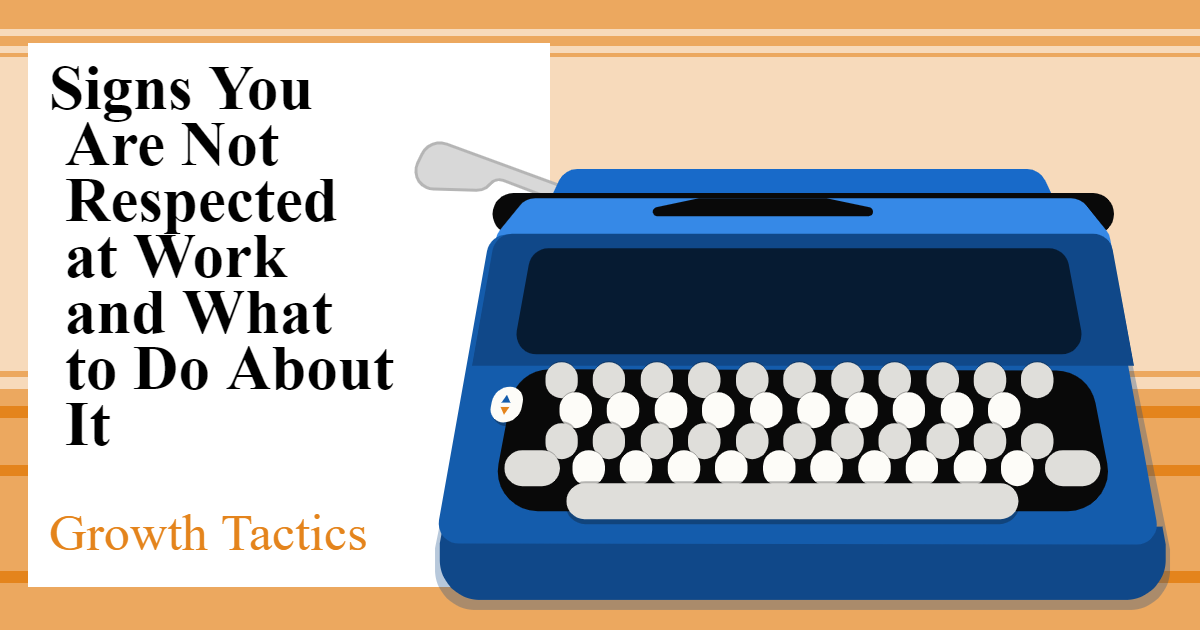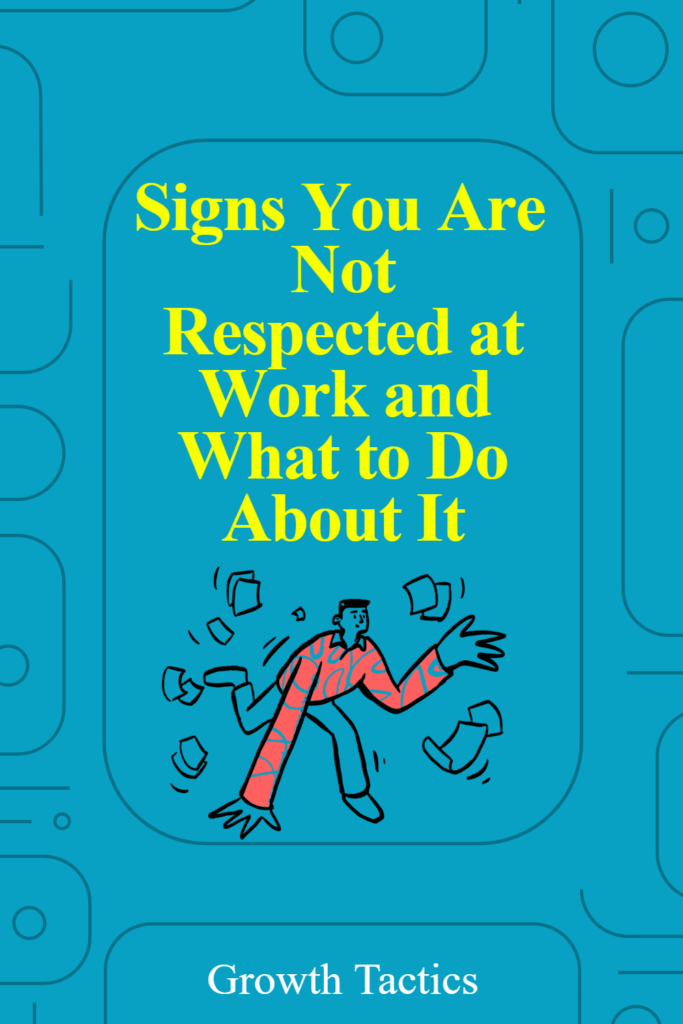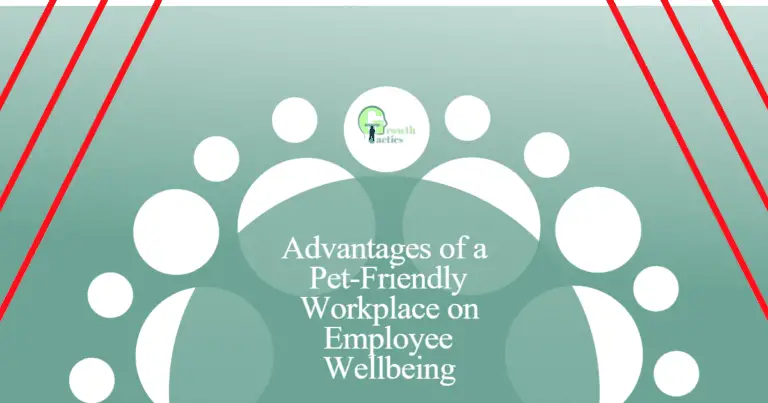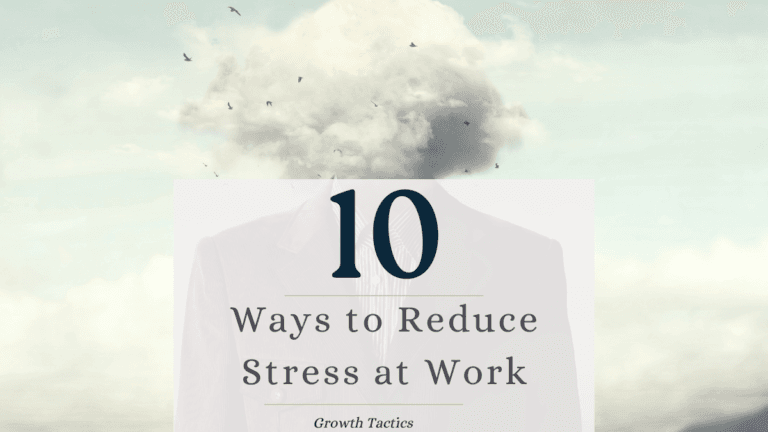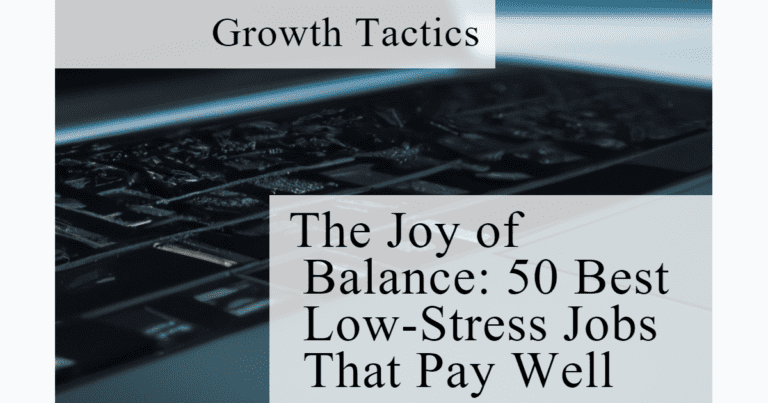Feeling undervalued or disrespected in the workplace can significantly impact your job satisfaction, work performance, and emotional well-being. It’s crucial that employees feel valued for their contributions and respected for their time and efforts.
However, many people find themselves in work environments where their hard work goes unrecognized and their input is undervalued. Subtle signs of disrespect in the workplace can demoralize employees, leading to decreased productivity and higher turnover.
This article explores common signs you are not respected at work and may not get the appreciation you deserve. Paying close attention to these red flags can help determine if your needs aren’t being met.
We’ll also discuss constructive ways to address the issue through open communication with your boss and colleagues. The goal is to remedy the situation or recognize that seeking a company culture aligning with your values may take time.
Jump To Section
Subtle Signs You’re Not Getting the Respect You Deserve

Feeling undervalued or disrespected at work is often not overt. It can manifest in subtle ways that slowly chip away at your motivation, engagement, and job satisfaction. Here are some subtle signs that you may not be getting the respect you deserve in the workplace:
Your work and achievements frequently go unrecognized. If you consistently put in effort, achieve great results for the company, or go above and beyond – yet your boss and coworkers don’t acknowledge your contributions – it’s a red flag. Lack of recognition for solid work is demoralizing and a sign that your work is undervalued.
Others take credit for your work and ideas. It can be infuriating when you do the work but someone else gets the credit. If you notice a pattern of others (especially managers) taking credit for your hard work, insights, or successful projects. It may be time to speak up or take action.
You’re excluded from important meetings and decisions. Being left out of the loop on workplace matters relating to your role is disrespectful and hinders your ability to perform. Observe whether your boss or colleagues value your input or regularly exclude you from important conversations.
Your Boss or Coworkers Don’t Value Your Time
One subtle sign you’re not getting the respect you deserve in the workplace is that your boss or coworkers don’t value your time outside of work. This could show up as poor work-life balance, unreasonable expectations for you to be available 24/7, last-minute changes to your schedule without consideration for your personal life, or constantly expecting you to work late nights and weekends.
While occasional late nights may be understandable, if it becomes an expectation that you should make work the only priority in your life, it’s a sign that your time and mental health are not respected. A company that values its employees will aim to promote a healthy work-life balance, not force constant overtime and burnout. Pay close attention to how your boss and coworkers treat your time. If your personal and professional lives constantly feel out of balance, it may be time to address this issue or explore other opportunities where your contributions are valued more reasonably.
You’re Not Given Opportunities for Growth

A lack of opportunities for professional development could be a sign that your work is undervalued. If your company doesn’t invest in helping you grow and improve, it may not see you as an important asset.
Some signs your growth is not prioritized include:
- No training or development opportunities are offered. Your employer doesn’t pay for you to take courses, attend conferences, or provide in-house training. This prevents you from expanding your skills.
- There’s no clear path for advancement. Your company doesn’t discuss future opportunities or have transparent promotion processes.
- You receive no constructive feedback. Your manager doesn’t give insight into your strengths or areas for improvement. Without feedback, it’s hard to progress.
- Your requests for training are denied or ignored. When you ask about development opportunities, your manager dismisses the inquiries.
- You’re passed over for promotions. Despite the positive performance, your employer promotes others instead of you.
- Your duties remain stagnant year after year. You do the same repetitive tasks without chances to expand your role.
A lack of growth opportunities can stunt your career. It’s a subtle sign your employer doesn’t value investing in your long-term success or trajectory. You risk becoming demoralized and feeling stuck without chances to develop new skills.
Your Hard Work and Achievements Go Unrecognized
One sign you’re not getting the respect you deserve at work is when your hard work and achievements go unrecognized. If you consistently put in effort and produce quality work, yet your boss or coworkers don’t acknowledge it, that’s a red flag. Lack of recognition for a job well done can demoralize employees and make them feel their work is undervalued.
Some examples of achievements being ignored include not getting praise for completing a big project, meeting an important deadline, or landing a new client. If you take on additional responsibilities or duties and it goes unnoticed, that’s another sign your work may not be valued. Your manager may fail to recognize your contributions in meetings, company newsletters, or performance reviews.
When hard work and extra effort lack acknowledgment, it leads to feeling unappreciated. Over time, a lack of recognition can negatively impact motivation, job satisfaction, and loyalty. If you don’t feel your work is appreciated after consistently producing results, it may be time to seek an environment that recognizes your contributions.
You’re Excluded from Important Work Conversations

Being excluded from important work conversations could signal that you’re not getting the respect you deserve in the workplace. When your boss or coworkers consistently leave you off important emails, don’t invite you to key meetings, or fail to loop you in on key decisions, it sends the message that your input and perspective aren’t valued. This type of exclusion can make you feel out of the loop and demoralized.
Employees must understand what’s happening in an organization and feel included in important conversations, especially if they relate to your work. Exclusion from these conversations leads to a lack of information and makes your contributions feel underappreciated. This subtle disrespect impacts relationships with colleagues and your overall job satisfaction.
If you find yourself excluded from important emails, meetings, or decisions around the office, it may be time to address the issue with your boss. Explain how you want to contribute fully, but the exclusion makes you feel your perspective isn’t valued. Suggest ways you can be looped in, like being added to key email chains or invited to relevant meetings. A company that values its employees will remedy the situation.
You’re Not Given the Resources You Need
One sign you may not be getting the respect you deserve is if your requests for resources or help are frequently denied or ignored. If you consistently struggle to get access to the tools, budget, staff, training, or information you reasonably need to do your job well, it’s a red flag.
Being denied resources prevents you from performing to your full potential and indicates the company or your manager doesn’t fully support your work. For example, if you handle marketing but are repeatedly denied access to analytics software or data that would help you be more effective, it undermines your role.
Similarly, if you request training or mentoring to expand your skills but are turned down without valid reason, it suggests you’re not valued. Your growth and development aren’t priorities.
This lack of resources can directly impact your work performance and prevent you from advancing in your career. It also limits your ability to provide maximum value to the company.
You deserve to have your reasonable requests for resources, staffing, tools, or information needed to excel in your job granted. If not, it may indicate disrespect or lack of appreciation for your work and role.
You’re Not Paid Fairly for Your Work
Being underpaid is one of the clearest signs you are not valued at your workplace. If you’ve worked at a company for years without any meaningful raise or promotion, it shows your employer does not appreciate your contributions. Your pay is not keeping pace with your workload, responsibilities, and impact.
This sends the message that the organization undervalues your work and does not properly compensate you based on your performance. While cost-of-living or merit-based raises are standard, you likely deserve more if you go long stretches without any increase or path for advancement. Your employer may be taking advantage of your loyalty and hard work without rewarding you properly.
Look at industry standards and talk to colleagues to get a sense of fair pay. Research shows underpaying staff leads to lower engagement, and retention issues, and hurts productivity. If you consistently outperform in your role but are not paid fairly, it will breed resentment and signal it’s time to find an employer who values you. Leaving for better pay is a common reason for turnover when companies fail to pay staff they’re worth.
Your Input Isn’t Sought out or Valued
Another sign you may not be getting the respect you deserve at work is if your ideas and input are routinely dismissed or ignored. If your boss or colleagues don’t ask for your opinion in meetings or during important discussions, it could be a subtle sign your contributions are not valued.
When your insights and perspectives are consistently overlooked, it can make you feel your voice doesn’t matter. You may sense that your boss and coworkers don’t actually care about what you have to say, even if you have relevant expertise worth sharing. Disregarding your input can breed resentment and make you feel invisible or unimportant.
It’s demoralizing when you take the time to thoughtfully share suggestions or voice concerns, only to have them brushed aside without consideration. If your input seems to fall on deaf ears while your coworkers’ ideas get taken seriously, it’s understandable to feel frustrated and unappreciated.
Being excluded from important conversations and decisions is not only disrespectful, but it also prevents you from fully contributing your skills. When your boss decides your input isn’t worthwhile, your ability to impact the team and company is hindered.
What to Do If You Feel Undervalued at Work

Feeling undervalued at work can take an emotional and mental toll over time. However, there are constructive ways to address the issue that may help remedy the situation. Here are some suggestions:
- Talk to your boss. Have an open and honest dialogue with your manager about how you feel undervalued. Give specific examples of times your work went unrecognized or your input wasn’t considered. Suggest ways your boss could provide you with more constructive feedback, opportunities for growth, and appreciation for your work. Approach the conversation collaboratively, focusing on how to work together to improve your job satisfaction.
- Clarify expectations. There may be a disconnect between what you hope to gain from your job and what your employer expects. Discuss your professional development goals with your boss and ask how they envision you advancing and growing in your role. Make sure you both have realistic expectations.
- Ask for regular feedback. Don’t rely solely on annual performance reviews to understand how your boss perceives your work. Request regular check-ins to get constructive feedback on your job performance and areas for improvement. Use it as an opportunity to get recognition for your contributions.
- Take note of red flags. Pay attention if your needs consistently go unmet over time, despite efforts to communicate with your employer. Signs like lack of recognition, inability to advance, and poor work-life balance may indicate it’s time to start exploring new job opportunities where your skills will be valued.
- Expand your professional network. Building relationships with colleagues can help you feel appreciated day-to-day. Also, consider joining professional associations or taking on side projects to gain a sense of fulfillment and remind yourself of the value you bring to any workplace.
If you’ve consistently put effort into improving the situation to no avail, it may be a sign that you deserve better and it’s time to seek a company that recognizes your worth. Just be sure to make your case by documenting your contributions and abilities before making a move.
Conclusion
In conclusion, recognizing the signs of disrespect at work is crucial for maintaining a healthy and productive work environment. Signs such as being overlooked, receiving consistent criticism, having your ideas stolen, being the target of gossip, or experiencing blatant disregard for your time and contributions indicate a lack of respect. If you encounter these issues, it’s essential to address them proactively. Start by self-reflecting to ensure your own behavior is professional and respectful.
Next, communicate your concerns clearly and assertively with the relevant parties. If the situation doesn’t improve, seek advice and support from HR or consider further actions such as mediation or, in some cases, looking for a work environment where you are valued and respected. It’s important to remember that respect is a fundamental right in the workplace, and taking steps to secure it is necessary for your well-being and career growth.

